Mississippians living with HIV gain transplant options close to home
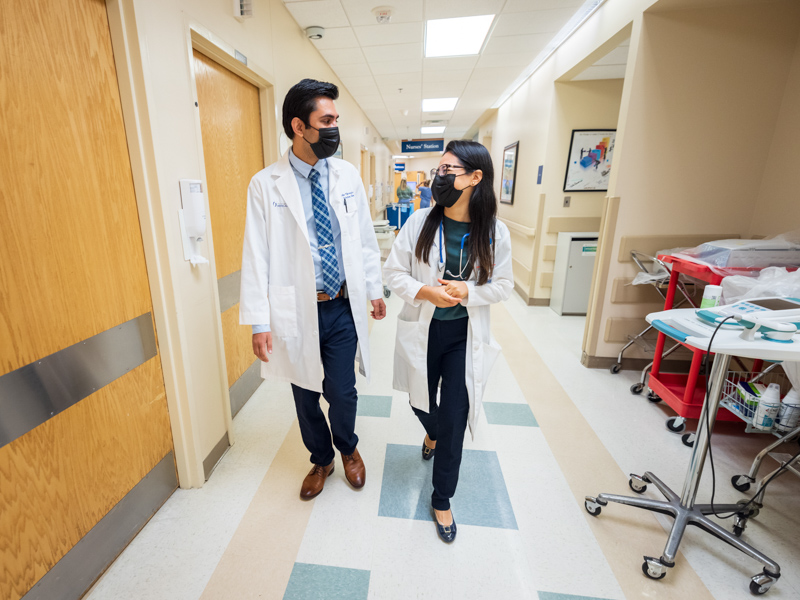
For Mississippians who cope with HIV, organ failure caused by the rigors of their disease can be significantly more life threatening than the infection they live with.
They’ve had to travel out of state for the hope of a transplant because their HIV or AIDS status requires a different level of expertise. But now, they can receive life-saving kidneys close to home at the University of Mississippi Medical Center, which offers the state’s only organ and bone marrow transplant program.
Paving the way are UMMC’s first transplant infectious diseases physicians, key players in the multidisciplinary care a patient living with HIV must have before and after transplant. Dr. Prakhar Vijayvargiya and Dr. Zerelda Esquer Garrigos, both assistant professors in the Department of Medicine’s Division of Infectious Diseases, will work hand-in-hand with UMMC’s transplant team to manage the care of that infection-prone patient population.
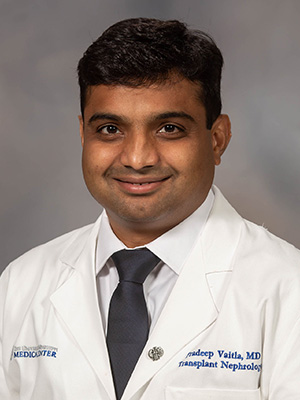
“Patients living with HIV are in an immunocompromised state, and managing immunosuppressive medications and HIV will require dedicated training,” said Dr. Pradeep Vaitla, medical director of kidney and pancreas transplantation. “You need someone trained in this field to manage these patients, and that’s what these two folks bring to the table.
“We are eagerly waiting to do the first HIV positive recipient’s transplant. We have one patient on the wait list and one or two patients being worked up.”
Garrigos and Vijayvargiya also will manage the pre- and post-transplant care of non-HIV patients who have received a kidney from a hepatitis C-infected donor. Previously, patients with hepatitis C received transplants at UMMC, but patients uninfected with hepatitis haven’t received an organ from a hepatitis C-positive donor.
“Now we have that opportunity. Mississippians with HIV who also have kidney failure no longer need to travel out of state to get a life-saving kidney transplant” Vaitla said.
Mississippi’s numbers for HIV infection are sobering. Latest statistics from the Centers for Disease Control and Prevention show there are 11,300 people in Mississippi living with HIV and about 430 new infections diagnosed annually. UMMC’s Adult Special Care Clinic, which specializes in HIV care provided through the Division of Infectious Diseases, serves more than 2,100 patients.
People who cope with HIV/AIDS for years weren’t considered good candidates for transplant because it was assumed they have a shorter life expectancy and that they wouldn’t respond as well to transplant as a non-infected person.
But thanks to drug therapy and regular care, infected patients are living much longer. Even so, the cause of premature death for many is end-stage organ disease and failure or liver disease due to chronic hepatitis C.
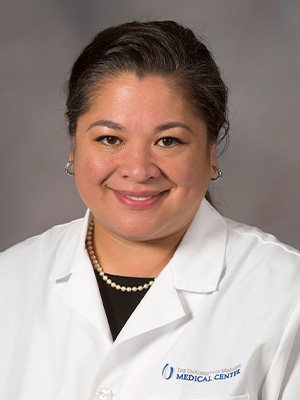
Vijayvargiya and Garrigos “deal with the unique (condition) that occurs when patients are profoundly immunosuppressed,” said Dr. Felicitas Koller, associate professor of transplant surgery, who performs kidney, liver and pancreas transplants. “Opportunist infections can arise in that population. They bring a nuanced understanding of infection problems in solid organ transplant patients.”
Garrigos and Vijayvargiya will help expand the donor pool by designing protocols for accepting organs from donors who had hepatitis C, Koller said.
Vijayvargiya and Garrigos, who are married, recently finished transplant infectious diseases fellowships at the Mayo Clinic in Rochester, Minn. “We moved here to start a transplant ID program,” Vijayvargiya said.
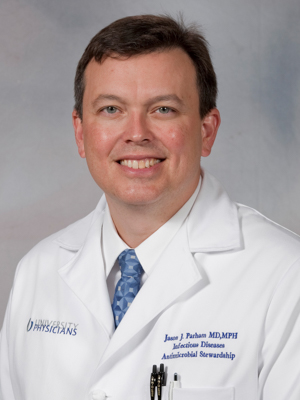
“Recruiting faculty to start a comprehensive ID transplant program has been on my wish list for a while,” said Dr. Jason Parham, director of the Division of Infectious Diseases. “In order for that to become reality, we needed divisional, department and institutional support, along with a strong endorsement of the plan by the UMMC transplant services.
“Fortunately, we had great advocates, including the chairs of the departments of Medicine and Surgery, as well as several of our renal and liver transplant doctors giving testimony as we pitched our proposal for the new services and positions to the CEO and vice chancellor’s office over two years ago,” Parham said.”
That started the search for Garrigos and Vijayvargiya, who were still completing fellowship training. “It was clear from our first interview that these were two exceptionally well-trained and motivated physicians, and that they were the right team to build this program,” Parham said.
As the Medical Center’s first dedicated transplant ID team, they are specifically trained to monitor drug therapy for patients living with HIV and compliance with all medications; manage any infections they have before and after transplant; determine which patients are good candidates for transplant; and help candidates to become healthy enough to qualify for transplant, among other duties.
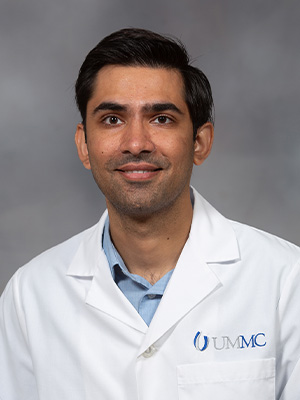
“It’s a unique opportunity to start something from scratch, and to design a program the way we want it to be,” Vijayvargiya said. “We really like the transplant team, and the ID team here is incredibly supportive.
“The major thing we monitor is drug interactions and opportunistic infections that happen in HIV patients,” he said. “We will follow them over time until everything is put into place from an infectious diseases standpoint, because we want them to be at low risk. Sometimes the medications they’re on can interact with their HIV medications, so we change them ahead of time to make sure that once they get their transplant, it won’t be a problem.
“We tee up these patients to make sure they’re ready for transplant.”
The team will dig deep to make sure patients have a history of being compliant with the unique medications designed to keep their HIV viral load practically non-existent, Garrigos said. If they don’t, the team will monitor them for six months to make sure they get back on track.
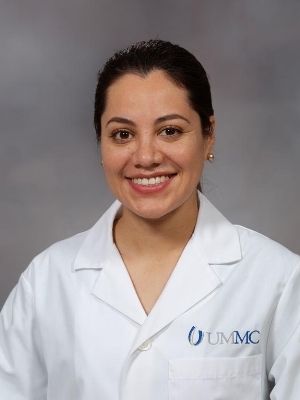
“We make sure that their immune system is such that they would tolerate the anti-rejection drug therapy they will receive after transplant,” she said. “We perform a thorough evaluation of any of their previous infections and evaluate their risk.”
Once patients undergo surgery, the transplant ID team will manage them for six months, in addition to the patient being seen by their HIV infection provider.
While kidneys will be the only organs initially transplanted into patients living with HIV, both liver and kidney transplants are possible for patients receiving a hepatitis C-positive organ, Vaitla said.
“If a patient receives a donor organ from someone who had hepatitis C, we can treat them for hepatitis C after their transplant,” he said. “We have not done that before.”
A patient would need to make an informed decision before agreeing to accept an organ from a hepatitis C-positive donor, but it could mean they’d get an organ sooner. The median wait time for a kidney transplant is 42 months; currently, about 900 people are on a kidney waitlist at UMMC.
Next on the horizon, but likely several years away, will be transplanting organs from one HIV patient to another, Koller said.
“The thing I’m most excited about is that Dr. Garrigos and Dr. Vijayvargiya will walk with us as we expand transplant,” Koller said. “I would have been happy with a team of one. The fact that we got two is great.”


